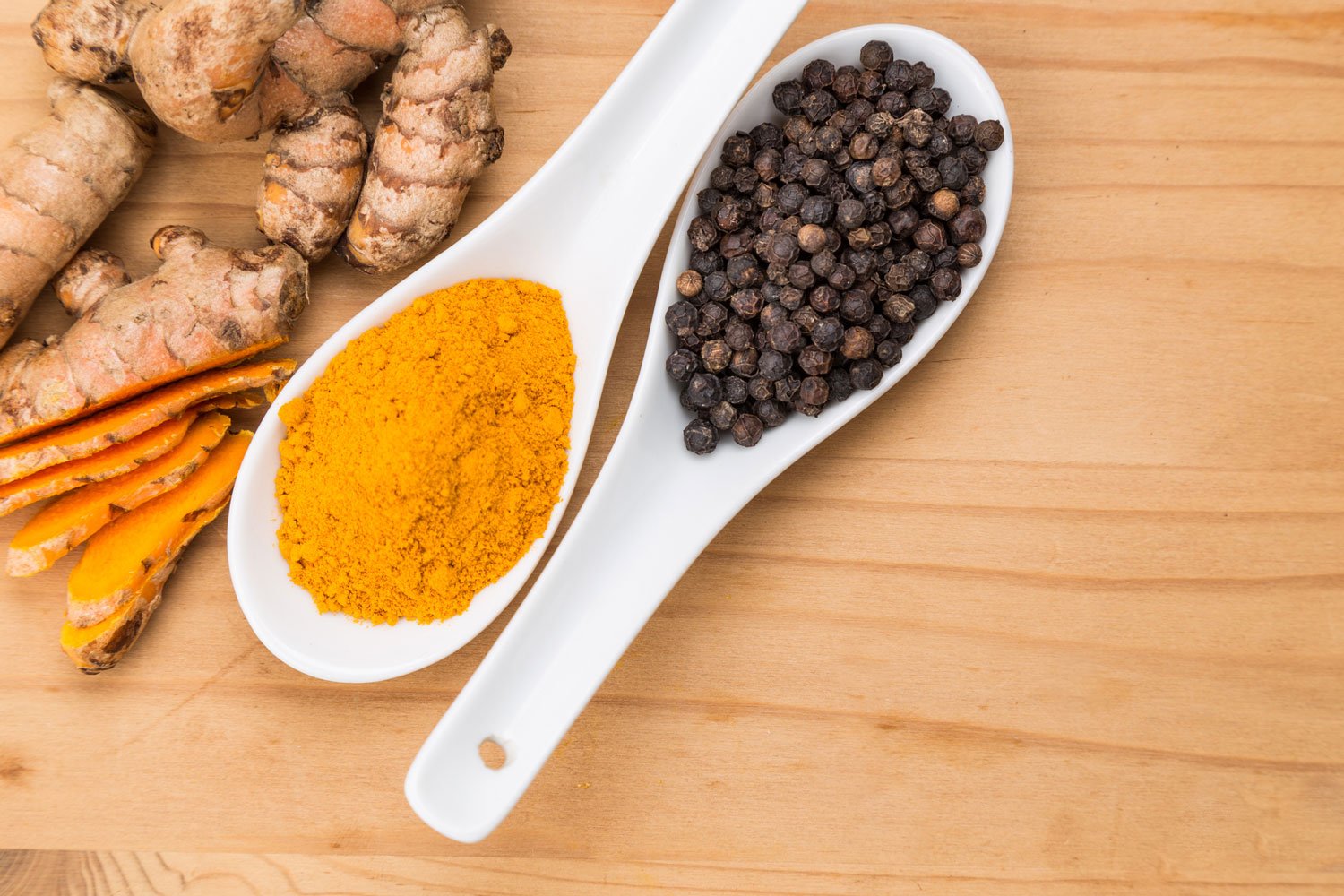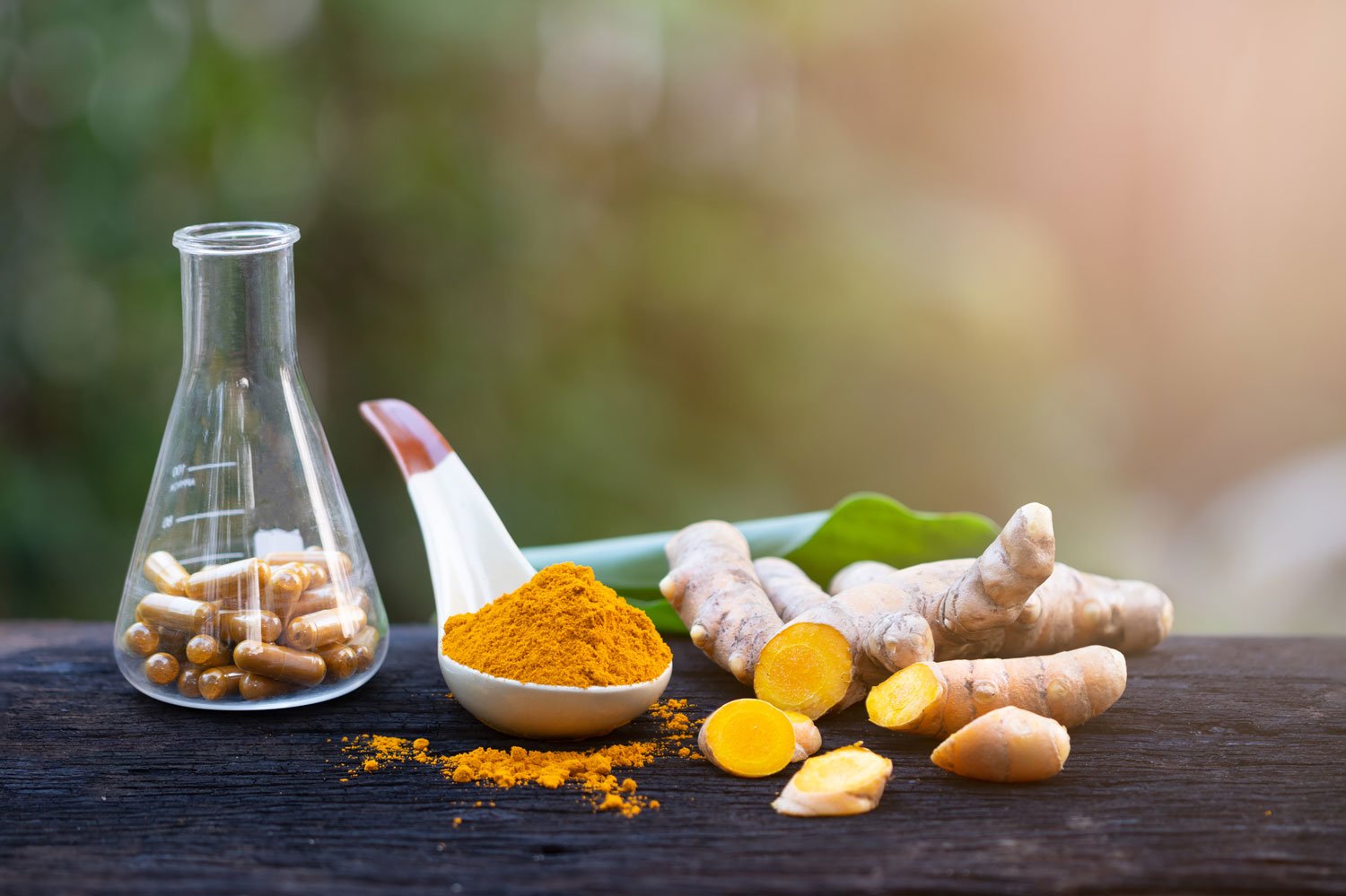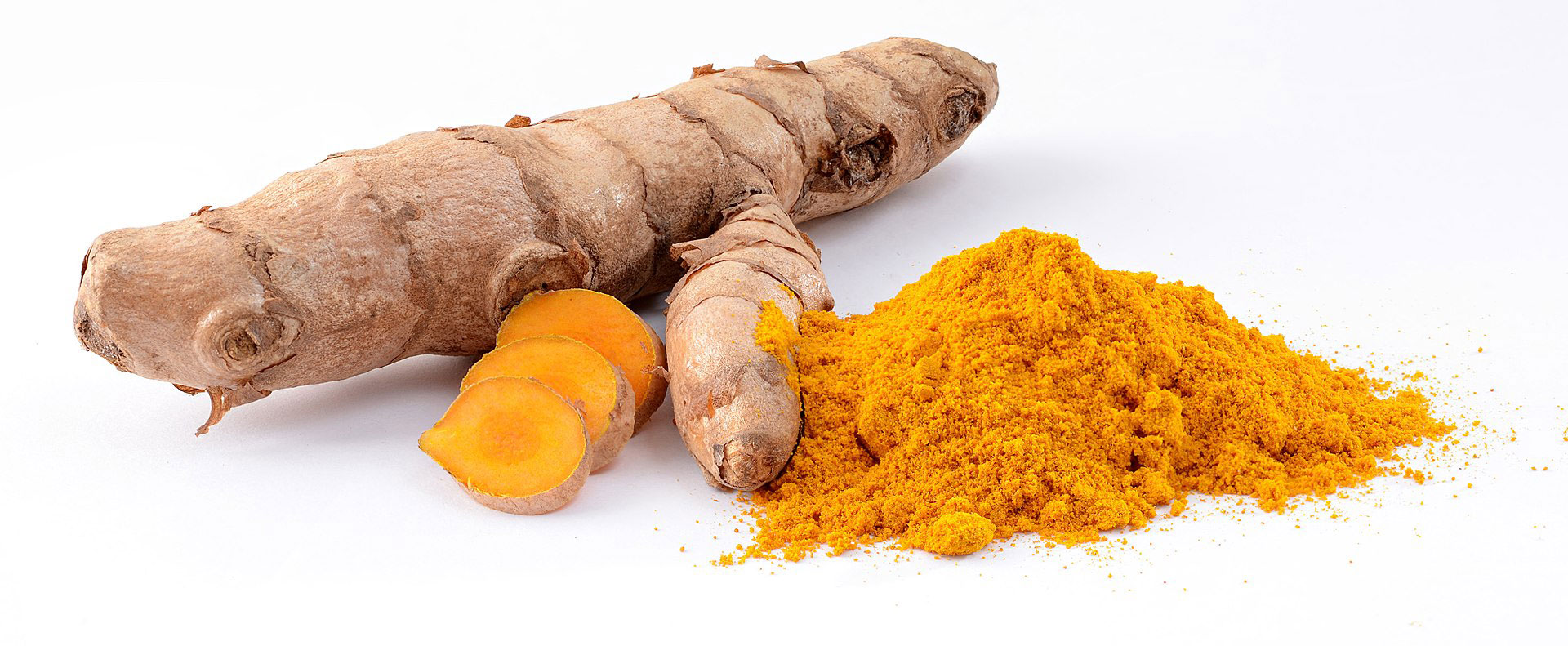Does heart disease run in your family? What about cancer or diabetes? Maybe you think your genetic code is fairly set in stone and that many of the health problems you’re predisposed to are unavoidable. If so, you’re not alone. It has been a long-held belief that, for the most part, genes shape destiny. But research is showing us a deeper truth. Your genes are not your fate. And through diet and lifestyle choices, you have more control over your health than most of us ever could have imagined and the health benefits of curcumin are here to help.
One example is a 2015 blockbuster study which found that a nutrient called curcumin, a primary active compound in turmeric and the reason the spice is yellow, may be able to help protect you from disease by regulating epigenetic expression.
What Is Epigenetics?
The fast-growing field of epigenetics deals with the many factors that can affect your DNA. These factors can determine whether a specific gene or cluster of genes is switched on or off — and therefore, whether disease develops or health is protected and promoted.
Certain genes or gene clusters can indicate a genetic predisposition for developing conditions such as cancer, Alzheimer’s disease, and other ailments. But in order for you to actually develop those diseases, the genes involved may need to be “switched on” to express themselves.
Fortunately, when you introduce positive epigenetic influencers, including certain foods and phytochemicals such as curcumin, you may be able to ward off disease and enhance your overall health and wellness.
Indeed, the overall way you live your life — from the food you eat to the air you breathe to the emotions you cultivate — all influence genetic expression. Lifestyle factors function as epigenetic influencers, both positive and negative.
We all face a spectrum of negative epigenetic influencers daily, such as nutritional deficiencies, hormonal imbalances, toxins, pollution, and recurring stress. These negative epigenetic influencers can encourage diseases to flourish, which is why it’s so crucial to understand and take advantage of protective agents. And one of these is the curcumin found in turmeric.
How Curcumin Could Hack Your Genetic Code for the Better
In a groundbreaking 2015 review published in Current Pharmacology Reports, researchers presented a compelling argument for using curcumin, the active ingredient in turmeric (which they call the “King of Spices”), to improve your genetic expression for the better. It turns out that curcumin’s positive impact on gene expression appears able to help prevent and treat multiple kinds of cancer, as well as a variety of age-related diseases.
One of the primary ways it does this is by influencing a process called methylation. In simple terms, methylation occurs when a single carbon and three hydrogen atoms — collectively referred to as a methyl group — link up with a molecule. One way to think of methylation is like an on/off switch that controls how your genes express themselves.
Scientists have determined that methylation contributes to the progression of a variety of diseases, including prostate, colon, and lung cancer, as well as diabetes, neurocognitive diseases, autoimmune disorders, and inflammatory disorders.
Recent research has indicated that curcumin may help to “turn off” the genes that could lead to the development of those destructive conditions. In other words, it may be able to help your body keep itself healthy and disease-free, even when it comes to hereditary conditions.
Reporting in Current Pharmacology Reports, Sarandeep S. S. Boyanapalli and Ah-Ng Tony Kong write:
“Contemporary research shows that curcumin can epigenetically regulate the expression of important genes by reversing DNA methylation… Several studies have shown the potential of curcumin in regulating various intracellular pathways, thereby attenuating certain diseases, including cancers, diabetic nephropathy, and… Alzheimer’s disease.”
How One Researcher Spiked Interest in Curcumin
When professor Bharat B. Aggarwal, PhD, a biochemist at the MD Anderson Cancer Center, began researching turmeric, there were, in total, less than 50 published scientific studies on the healing potential of spices. Dr. Aggarwal grew up in India, where turmeric has been used for centuries to treat ailments ranging from broken bones to sore throats — as well as being used extensively in food.
Turmeric’s role as a significant anti-inflammatory agent in Ayurvedic medicine led him to devise pioneering research studies to explore how the curcumin in turmeric might block anti-inflammatory pathways. Since Aggarwal’s initial study, more than 1,500 papers on curcumin have been published, examining its potential to treat conditions ranging from cancer to psoriasis, arthritis to diabetes, and Alzheimer’s to heart disease.
Curcumin’s capacity to fight inflammation may be the most exciting of its hundreds of documented therapeutic effects. Human trials have found that curcumin can be useful for quelling low-grade inflammation, which is an thought to be an underlying cause of conditions, including:
- Cancer
- Heart disease
- Metabolic syndrome
- Alzheimer’s
- And other degenerative conditions
How You Can Take Advantage of Curcumin’s Health Benefits

Adding turmeric powder or fresh turmeric root to multiple things you eat throughout the day, such as sautéed veggies, curry dishes, smoothies, and “golden milk,” could be a great way to take advantage of curcumin’s health benefits. The challenge is that turmeric is only around 3% curcumin, and the bioavailability of curcumin is low – meaning our bodies aren’t able to absorb and use it very efficiently. But there are several things you can do to boost the bioavailability of the curcumin you eat.
- Consuming turmeric in its whole food form (fresh or dried as a powder) can enhance the bioavailability of curcumin seven to eight times.
- Adding black pepper has been found to boost curcumin’s bioavailability by 2,000%.
- When consumed with fat, curcumin can bypass the liver and be directly absorbed into the lymphatic system.
How Much Turmeric Should You Eat?
Consuming turmeric appears to be beneficial for maintaining wellness and avoiding some diseases. But how much do you need?
The average Indian eats approximately half a teaspoon of turmeric per day. Many researchers believe this could be one of the reasons that, compared to the United States and Europe, India has dramatically lower rates of death from Alzheimer’s and cancer.
But turmeric is a strong-flavored spice, and eating a half-teaspoon of it per day can feel daunting to uninitiated taste buds.
For this reason, many people have started taking curcumin supplements. But it’s important to keep in mind that not all studies use the exact same curcumin formulations. One distinction that’s not often considered is the question of whether a study used curcumin exclusively or a formula that included the other components of the turmeric root. The words “turmeric” and “curcumin” are sometimes used interchangeably, as if they refer to the exact same thing. But curcumin is not the only compound in turmeric that has profound medicinal benefits. In fact, studies suggest that other compounds in turmeric could help regulate epigenetic factors as well.
So it could be that the best option is actually to take both — or to choose a full-spectrum curcumin supplement that includes the components of the raw turmeric root that are typically removed during the curcumin extraction process. It appears that the whole turmeric root’s natural components work together synergistically, and when they’re all present in a supplement, its bioavailability may be enhanced.
Why Aren’t More People Using Curcumin?

Given curcumin’s potent effects on a wide range of conditions, why aren’t more people using this remarkable natural treatment to help them address their health problems?
One reason might be the cost, though perhaps not in the way you might think. In addition to being incredibly effective, curcumin is quite affordable. But doctors have been slow to embrace this powerful medicinal plant substance.
According to Dr. Aggarwal, some doctors simply struggle to believe that curcumin can perform as well as (or better than!) drugs that cost $45,000 to $50,000 per dose. He also predicts that pharmaceutical companies will be the biggest impediment to the widespread use of curcumin since they won’t be able to profit from it in the way they profit from costly treatments like chemotherapy.
Curcumin may not be healthy for pharmaceutical companies’ profit margins, but consuming turmeric, and/or incorporating a high-quality curcumin source into your wellness regimen, may certainly benefit your health.
Editor’s Note:
If you’re looking for a curcumin supplement, here’s my favorite. Purality Health has developed an outstanding product using a cutting-edge micelle liposomal formulation that’s been found to increase bioavailability by up to 185 times. Their formula also contains ginger oil, vegan DHA fatty acids from algae, and beneficial phospholipids. The product is 100% vegan, organic, soy-free, and non-GMO. If you use our link, they’ll contribute a portion of the proceeds to the work of Food Revolution Network. Click here to find out more.
A Word of Caution:
Turmeric is a natural blood thinner. If you’re currently taking blood-thinning medications, are pregnant, have gallstones, or are susceptible to kidney stones, you may want to moderate your turmeric consumption or take it under the supervision of a healthcare provider.
Lead in Turmeric
Investigators believe that in some countries, turmeric may be intentionally contaminated with lead to enhance its weight, color, or both. Lead-contaminated turmeric has repeatedly been found in India and Bangladesh, and it may be a concern in the United States, as well.
The FDA has not set maximum permissible levels of lead in spices. As a result, the agency does not regulate lead levels in turmeric. If you want to protect yourself and your family from possible lead contamination, the best option is to buy fresh turmeric root or to buy organic turmeric and curcumin products. You can also contact manufacturers to ask if they test for lead and other metals.
We asked Purality Health about their products and lead, and they told us they run ICPMS (the highest standard for heavy metal testing) on every batch of Curcumin Gold. They test internally and also hire a third party for independent verification. The test results show there is no lead in their products. They report that they are also fully compliant with California’s Prop 65. See more about Curcumin Gold here.
Tell us in the comments:
- Do you eat turmeric or take curcumin supplements?
- Will you incorporate curcumin into your diet more after reading this article?
- What do you think about curcumin’s health benefits?
Featured Image: “Turmeric (Curcuma longa): fresh rhizome and powder” by Simon A. Eugster, CC BY-SA 3.0




